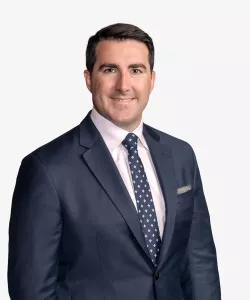National Nursing Home Initiative to Focus on Substandard Nursing Facilities
Headlines that Matter for Companies and Executives in Regulated Industries
Health Care Enforcement News
National Nursing Home Initiative to Focus on Substandard Nursing Facilities
On March 3, 2020, Attorney General William Barr announced the launch of the US Department of Justice’s National Nursing Home Initiative. The initiative aims to coordinate and enhance civil and criminal efforts to investigate and prosecute nursing homes that provide “grossly substandard care,” with a focus on the “worst nursing homes around the country.” According to the DOJ’s announcement, thirty facilities in nine states are already under investigation.
The DOJ set forth a number of factors for identifying the most problematic nursing facilities, including repeated failure to provide adequate staff; failure to adhere to basic hygiene and infection control protocols; failure to provide sufficient food; withholding pain medications; and use of physical or chemical restraints to restrain or sedate residents.
Through the new initiative, the DOJ will swiftly pursue owners and operators of nursing homes that provide substandard care. Criminal prosecution of the owners and operators can result in financial penalties and exclusion from federal health care programs. Other consequences of substandard and/or abusive care may include civil financial penalties under the False Claims Act, which can result in significant damages.
Additional details about the initiative can be found here.
SEC Developments
SEC Obtains Asset Freeze and Seeks Injunctions and Disgorgement against Florida Investment Advisor
Last week, a US District Court Judge for the Middle District of Florida granted the U.S. Security and Exchange Commission’s request for emergency relief—including an asset freeze—against Sarasota-based Kinetic Investment Group LLC and its managing member, Michael Scott Williams, related to an allegedly unregistered fraudulent securities offering.
According to the Complaint, the defendants solicited investors to invest in Kinetic Funds I, LLC, a purported hedge fund with a sub-fund structure that was managed by Kinetic Investment Group. The defendants allegedly represented that Kinetic Fund’s largest sub-fund only invested in U.S.-listed financial products and that at least ninety percent of its portfolio was hedged using listed options.
However, the SEC claims that Williams actually invested a significant part of the sub-fund’s assets in a private start-up company that he owned. The SEC further alleges Williams misappropriated at least $6.3 million of Kinetic Funds’ assets to finance other business ventures and to pay for personal expenses, including three luxury apartments for his personal use. These misrepresentations, the SEC suggests, provided the false impression that the investments in Kinetic Funds would be secure and liquid.
Williams offered Kinetic Funds to his friends, partners, and associates. The defendants also created marketing materials and websites to solicit additional investors. According to the SEC, the offering raised approximately $39 million from more than 30 investors.
The SEC’s Complaint includes causes of action related to the anti-fraud provisions of the federal securities laws.
Litigation Developments
New York Opioid Trial Delayed Due to Covid-19
A trial involving major drug companies and the New York Attorney General, scheduled to start on March 20, 2020, has been postponed indefinitely as a result of the Covid-19 pandemic. According to a spokesperson for the Attorney General, the postponement was a precautionary measure due to the large number of people traveling to attend the jury trial.
To date, only one opioid case against major drug manufacturers and distributors has gone to trial, which resulted in the Oklahoma Attorney General winning a $465 million judgment against Johnson & Johnson.
The closely watched New York case is anticipated to test claims from the state of New York and two Long Island counties against a wider set of companies, including drugmakers, distributors, and pharmacy chains. A status conference was set for April 14, 2020.
Read more about the case and its delay here.
Sleep Center Operator Settles False Billing Claims
On March 11, 2020, Millennium Physicians Association PLLC settled claims that it violated the False Claims Act for improperly billing Medicare for payments for sleep studies.
A whistleblower previously employed by Millennium, which owns and operates sleep centers in Texas, filed a lawsuit alleging that Millennium conducted sleep studies without credentialed technicians. Although Medicare requires that trained and certified technicians administer such studies, the government’s investigation ultimately showed Millennium billed and received payments for sleep tests conducted without the proper personnel present.
Additionally, Millennium self-reported that two of its sleep centers operated between 2011 and 2019 without the accreditation or certification required by Medicare rules. In the lawsuit, the government claimed Millennium violated the FCA by submitting false claims to Medicare for payment for sleep studies performed at those sleep test facilities.
Millennium paid $1,248,964 to resolve the case without admitting liability. The relator received $187,344 as part of the settlement.
More information about the settlement is included in the DOJ press release.
Landlord Settles False Claims Act Allegations in “Section 8” Housing Case
On March 6, 2020, the US Attorney’s Office for the District of Massachusetts announced that landlord company 44 Hawthorne, LLC and its owner settled allegations that they allegedly collected impermissible excess rent payments from a tenant in the Federal Housing Choice Voucher program, known as “Section 8.” The tenant initially filed the lawsuit against the defendants under the qui tam provision of the False Claims Act, claiming the defendants collected excess rent for five months in 2017.
Section 8 is designed to help low-income individuals and may cover part or all of a recipient’s monthly rent. The program is administered by public housing agencies and the subsidy is paid directly to the landlord. The landlord, in turn, agrees not to charge the Section 8 tenant rent exceeding the amount set by the public housing agency.
Under the settlement agreement, the defendants will pay the tenant about $1,540 and the United States $7,000.
Read the DOJ press release announcing the settlement here.
Contacts
- Related Industries
- Related Practices






